Parents help students choose a profession.

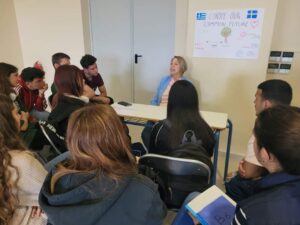
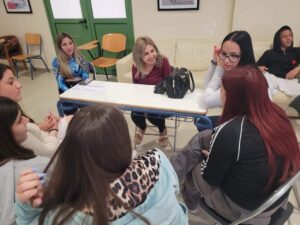
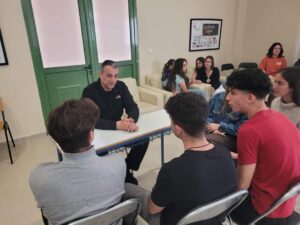


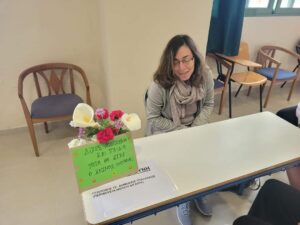
Japanese solutions.
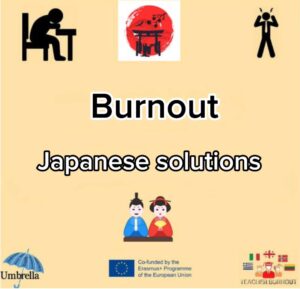
As promised, we are sharing the most interesting and creative burnout solutions worldwide 🌍 this time we go to – Japan
🤗 Let’s see some of the tricks which are used in the country of the rising sun and technological innovation – Japan 🇯🇵
✅ Inemuri 💤 – is the Japanese practice of sleeping at work, so some companies in Japan have rolled out designated nap rooms for overtired workers.
✅ Japanese shouting vase 🗣 – strange to hear right? 😏 It is designed to be shouted into in order to allow for the venting of anger without all the disturbing noise, the shouting vase became a smash hit.
✅ Sports 🚴♂️ – The Japanese people also relieve stress with the help of physical activity. Thus, the involvement of the population in sports is about 60%.
✅ Cat сafes 🐈– our favourite – Zootherapy. 😊❤️ You can find some cats living in establishments called Cat cafes. For a small fee, everyone can play with the cats, stroke them and thus feel relaxed and less exhausted.
✅ Singing 🎵🎤- singing is another way to forget about worries and cheer up. Therefore, karaoke bars in Japan are almost always crowded.
👌🏻We will continue investigating 📖👀 and will be back soon with another country “on the stage”.
Characteristics of stressful situations.
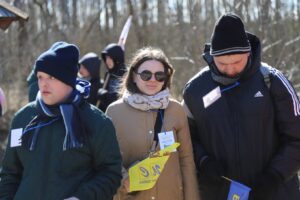
Characteristics of stressful situations experienced by Lithuanian teachers and educational support specialists and coping with stress.
Dear Sirs, please fill out the questionnaire based on the Lithuanian stress coping scale
(authors Prof. G.Valickas and Dr. Ž.Grakauskas, 2006, improved hall version Valickas, Grakauskas, Želvienė, 2010).
Authors’ consent to use this scale has been obtained. With this questionnaire, we aim to investigate whether within 17 years in the period since the creation of the stress coping scale and in the 13 m period since the improvement of the scale, some new ways of coping with stress appeared.
We also aim to investigate the stressful situations experienced by Lithuanian teachers and educational support specialists, and what stress-coping strategies they use. The research is carried out by a group of scientists from Vilnius University’s Šiauliai Academy (Assoc. Dr. Daiva Alifanovienė, Assoc. Dr. Darius Gerulaitis, Assoc. Dr. Albina Kepalaitė, Assoc. Odeta Šapelytė, Assoc. Dr. Asta Vaitkevičienė), researching factors determining psychosocial well-being.
Please fill in each line of the questionnaire statements honestly, as only data from a completely completed questionnaire will be used for statistical analysis.
The researchers undertake to protect your confidentiality. Personalized and aggregated data will be used when publishing an article or presenting at a conference.
This electronic questionnaire consists of 5 sections. In the first section, you read a description of the study and the terms of consent to participate in the study. In the second section, if you agree to participate in the study, mark the answer option “I agree”.
If you do not agree to participate in the study, you no longer need to complete the questionnaire.
The third section will contain instructions for filling out the Lithuanian stress coping scale and 24 statements for your evaluation.
Please indicate how much you agree or disagree with the statements on a five-point scale (never – 1 point; rarely – 2 points; sometimes – 3 points; often – 4 points; always – 5 points).
In the fourth section, you will be asked to evaluate the stress caused by the last stress you experienced, the strength of the stress, and to assess which stressful situations you are dealing with in your life on a 10-point scale.
With an open-ended question asking you to write down your answer, we aim to understand how you normally cope with stress. In the fifth column, please provide some data about yourself. Filling out the questionnaire will not take longer than 15 minutes. your time.
Thank you for your consent to participate in the study.
It all started with the idea …
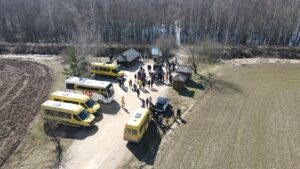
It all started with the idea that it’s time for teachers to look back at themselves, to think about their well-being and health.
How to learn to feel good? How do you maintain this good feeling with simple means that do not require much time and money?
Health and rehabilitation specialists provide educators with observations and practical advice on this topic.
Colleagues implemented the idea and on April 3, after school, together with the students, they went on a hike around Tyrel’s swamp.
Each participant had the opportunity to cover an 8 km. long track and discover the beauty of Lithuanian nature simultaneously.
During the hike, they discussed various activities that promote an active and healthy lifestyle and improve physical and mental health.
Educators’ desire to rest actively encourages the school community to improve: communicating, organizing events, taking care of the well-being, etc.
Such relaxing hikes by colleagues provide authentic experiences and impressions, strengthen, and improve health and involve the most diverse groups of people.
From children, school children to their parents.
A wonderful workshop.
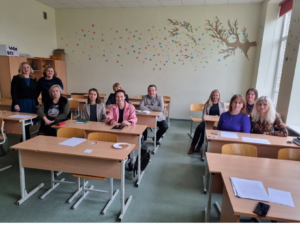
A group of teachers, from Joniškis “Aušros” gymnasium, Lithuania had a wonderful workshop
with two psychologists to experience different techniques on how to cope with stress.






